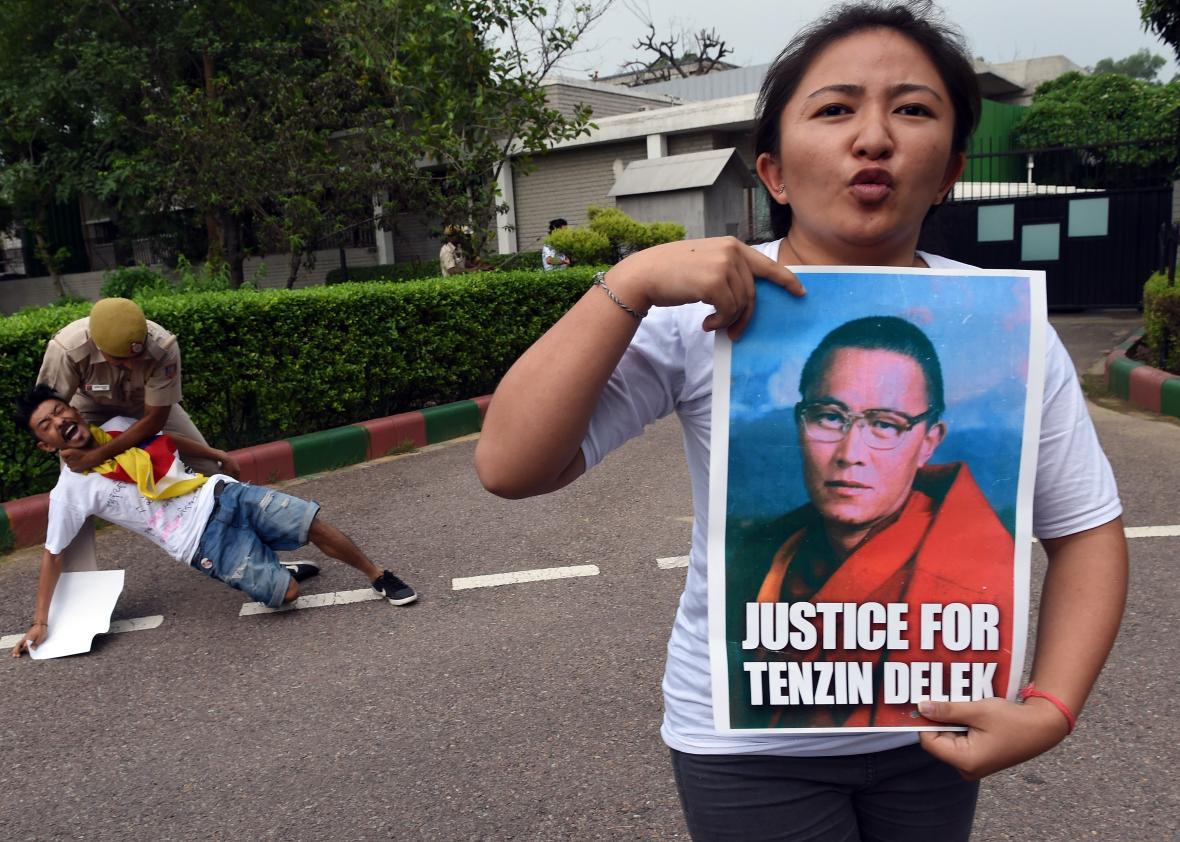Evidently not content with his controversial and still mysterious death in their custody, Chinese police forcibly seized the ashes of a prominent Tibetan monk last week.
According to the New York Times, supporters were transporting Tenzin Delek Rinpoche’s remains back to his hometown for Buddhist funeral rites when they say there were held at gunpoint and forced to hand over the remains. “Police said that they would throw the ashes into the nearby river. The four people don’t know what happened to the ashes,” Tenzin Delek’s cousin told the Times.
Tenzin Delek died in prison earlier this month, 13 years into 20-year sentence for involvement in a bombing at a public park—a charge his supporters say was false. He had studied under the Dalai Lama in India in the 1980s before returning to China, where he became a prominent community leader and also an irritation to the authorities due to his environmental advocacy and open support for the exiled Dalai Lama. Tenzin Delek was initially sentenced to death for terrorism and incitement to separatism over a 2002 bombing that injured three people in Chengdu. He maintained his innocence, and the sentence was later reduced. His family has accused the government of causing his death, either directly or though years of mistreatment in prison, and has called for an independent investigation.
His sister and niece were arrested in Chengdu last Friday after a sit-in demanding the return of his body, and more than 20 people were injured by riot police at a demonstration in Sichuan calling for an investigation. China Digital Times notes that many of the appeals by Tenzin Delek’s supporters for his release were directed at former security chief Zhou Yongkang, who was himself sentenced to life in prison last month on corruption charges.
Harsh as China’s justice system can be, particularly when it comes to sensitive topics like Tibet, it usually stops short of graverobbing. The system can also be capricious, as evidenced by today’s other news out of China: The artist Ai Weiwei got his passport back four years after it was seized, apparently for his political activism though he’s never been formally charged with a crime.
